Justice for All: Reversing the 80:20 Policy at AIIMS & ESIC
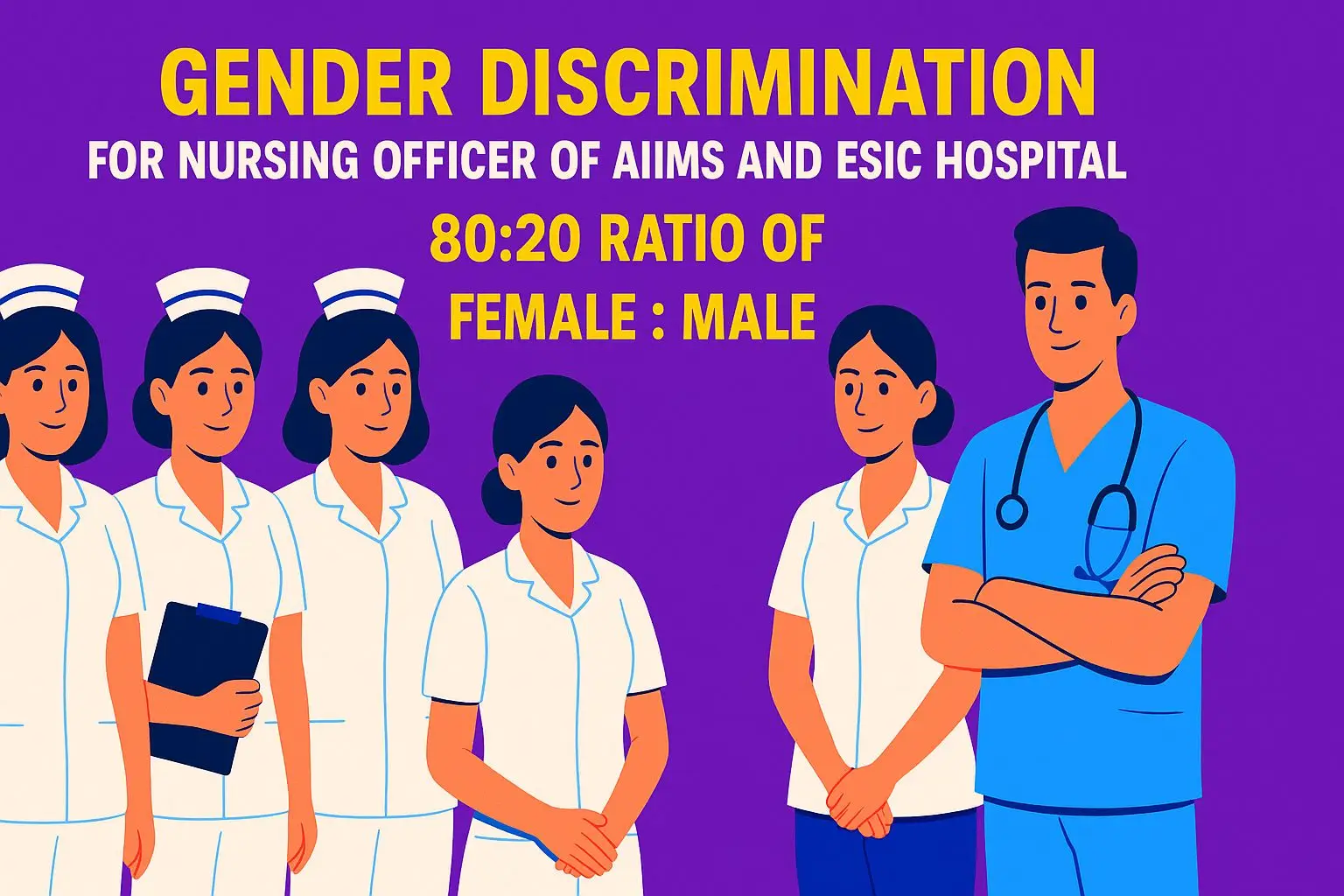
The 80:20 Female-Male Ratio in AIIMS and ESIC Nursing Officer Recruitment: A Contentious Policy
The All India Institute of Medical Sciences (AIIMS) and the Employees’ State Insurance Corporation (ESIC) have adopted, or at least proposed, an 80:20 female to male ratio for Nursing Officer recruitment. This policy, reserving 80% of nursing officer posts for female candidates and 20% for male candidates, has ignited significant debate and controversy across the country.
Example ; In any AIIMS & ESIC Hospital 100 vacancy of nursing officer, In 100 vacancy select or reservation 80 female candidate and 20 male candidate.
The Genesis of the Policy
The 80:20 ratio was first implemented by the Central Institute Body (CIB) of AIIMS in 2019. The rationale behind this decision, as stated by AIIMS, was to address the perceived “appropriateness” and requirement of a higher number of female nursing staff in various departments and specialized wards, particularly considering patient comfort and care, especially for female patients and children. ESIC has also aligned its proposed nursing officer recruitment with this ratio, with their recruitment process often submitted to AIIMS, New Delhi.
Arguments in Favor: Patient Comfort and Traditional Roles
Proponents of the 80:20 ratio primarily cite patient comfort and cultural sensitivities. They argue that in wards like PICU/ICU, mothers and female patients might be uncomfortable with male nurses attending to them or their children, especially during intimate procedures like breastfeeding. This perspective often leans on the traditional understanding of nursing as a profession predominantly suited for women, emphasizing the nurturing and caring aspects often associated with female caregivers.
The Opposition: Gender Discrimination and Constitutional Challenges
However, the policy has faced strong opposition from various quarters, including nursing unions and legal experts, who allege it constitutes blatant gender discrimination and violates fundamental rights.
- Violation of Article 16
- Critics argue that the 80:20 ratio undermines Article 16 of the Indian Constitution, which guarantees equality of opportunity in matters of public employment. By reserving a disproportionate percentage of posts for one gender, it is seen as a direct infringement on the right of male candidates to equal opportunity based on merit.
- Stereotyping and Limiting Opportunities
- Opponents contend that such a policy reinforces outdated gender stereotypes, pigeonholing nursing as a “female-only” profession. This not only limits career opportunities for qualified male nurses but also restricts the talent pool available to the healthcare system. Modern nursing encompasses a wide range of specialties and complexities, and aptitude,
gender should not be the primary criterion for recruitment in aiims and esic hospital. - Lack of Empirical Evidence
- The argument of “patient comfort” is often challenged for lacking scientific basis or comprehensive studies. Critics point out that AIIMS has not provided any data or evidence to support the claim that women are inherently better nurses or that male nurses inherently cause discomfort to patients.
- Impact on Male Nurses
- The 80:20 ratio significantly disadvantages male nursing aspirants, who, despite scoring high in examinations like NORCET (Nursing Officer Recruitment Common Eligibility Test), may not secure a position due to the limited number of male-specific vacancies. This can lead to frustration and a deterrent for men considering a career in nursing, at a time when there is a growing demand for healthcare professionals.
- Recent Developments and Legal Challenges
- The controversy has led to legal challenges. For instance, the Delhi High Court has heard pleas challenging the AIIMS policy, with some observations even suggesting that “reservation for women has been long overdue.” Conversely, the Ministry of Health & Family Welfare has, in some instances (e.g., in the case of NEIGRIHMS), advised against adopting the 80:20 Female and Male ratio, acknowledging the potential legal and administrative complexities.
The Employees’ State Insurance Corporation (ESIC) has also seen protests against the proposed 80:20 ratio, with the All India ESIC Nursing Officers’ Federation advocating for merit-based recruitment. While ESIC has outlined plans for nursing officer recruitment with this ratio, it continues to be a point of contention. - Conclusion: A Balancing Act Between Tradition and Equality
- The 80:20 (female-male) ratio in AIIMS and ESIC Hospital for nursing officer recruitment have a complex Challenges . While the intent might be to address perceived patient needs and societal norms, its implementation raises significant questions about gender equality, constitutional rights, and the future of the nursing profession. Moving forward, a more inclusive approach that prioritizes merit, respects individual rights, and fosters a diverse healthcare workforce, while also addressing genuine patient concerns through appropriate training and sensitization, will be crucial for creating a fair and equitable recruitment system for nursing officers in India. The ongoing debate highlights the need for a comprehensive re-evaluation of such policies to ensure that they are in line with modern principles of equality and non-discrimination.
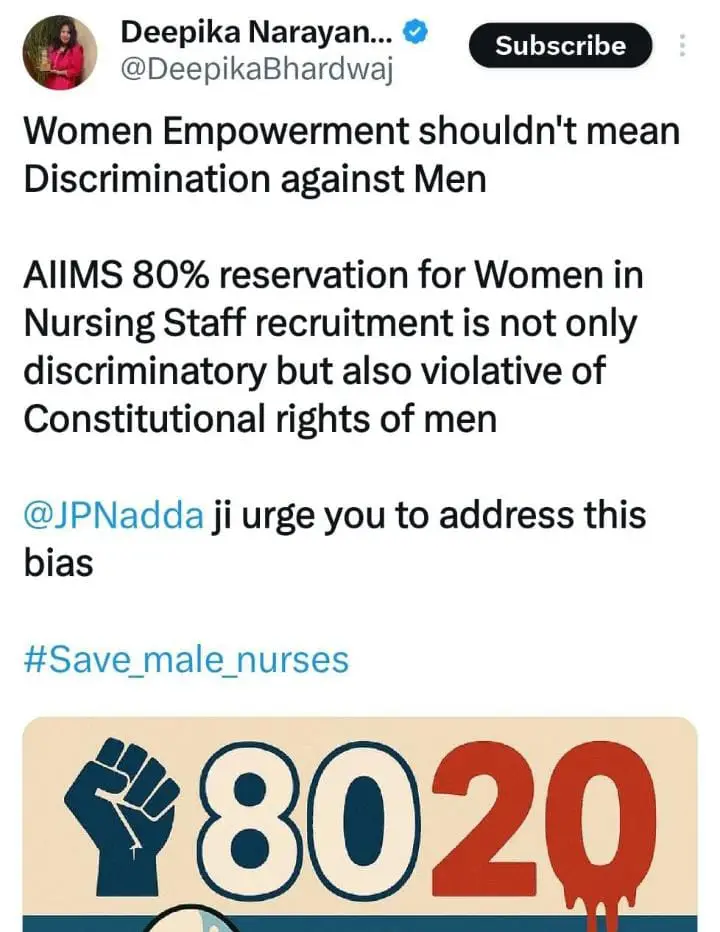
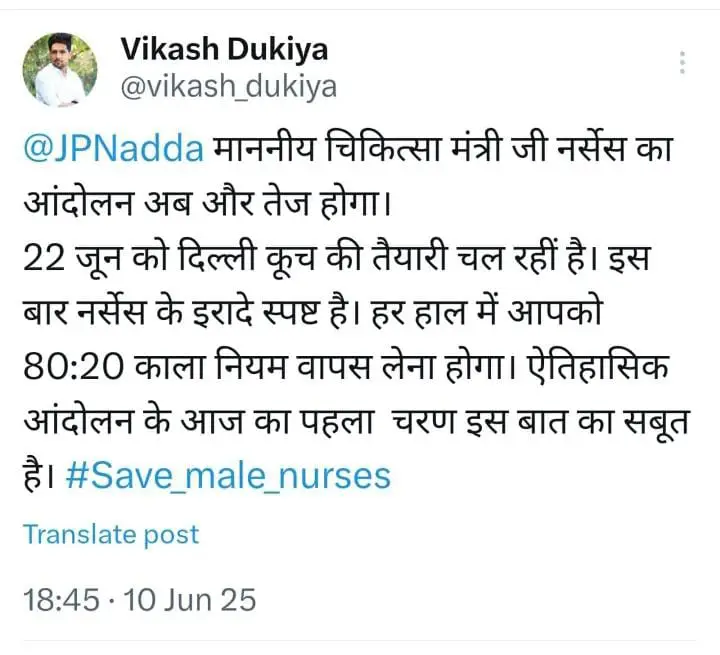
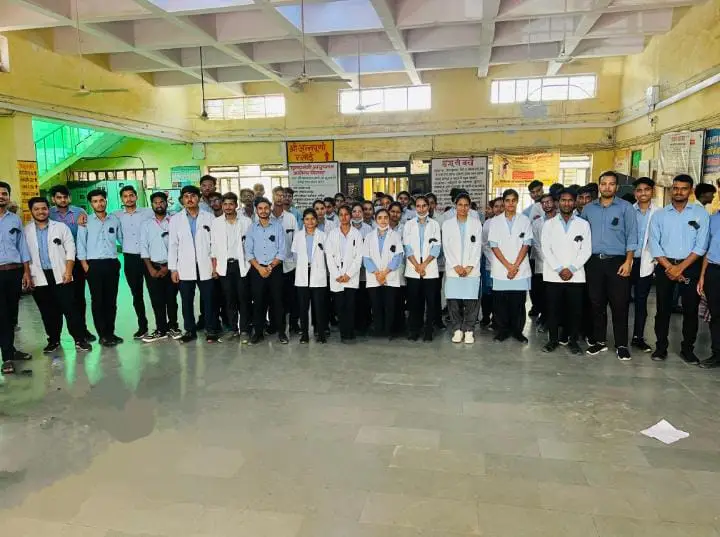
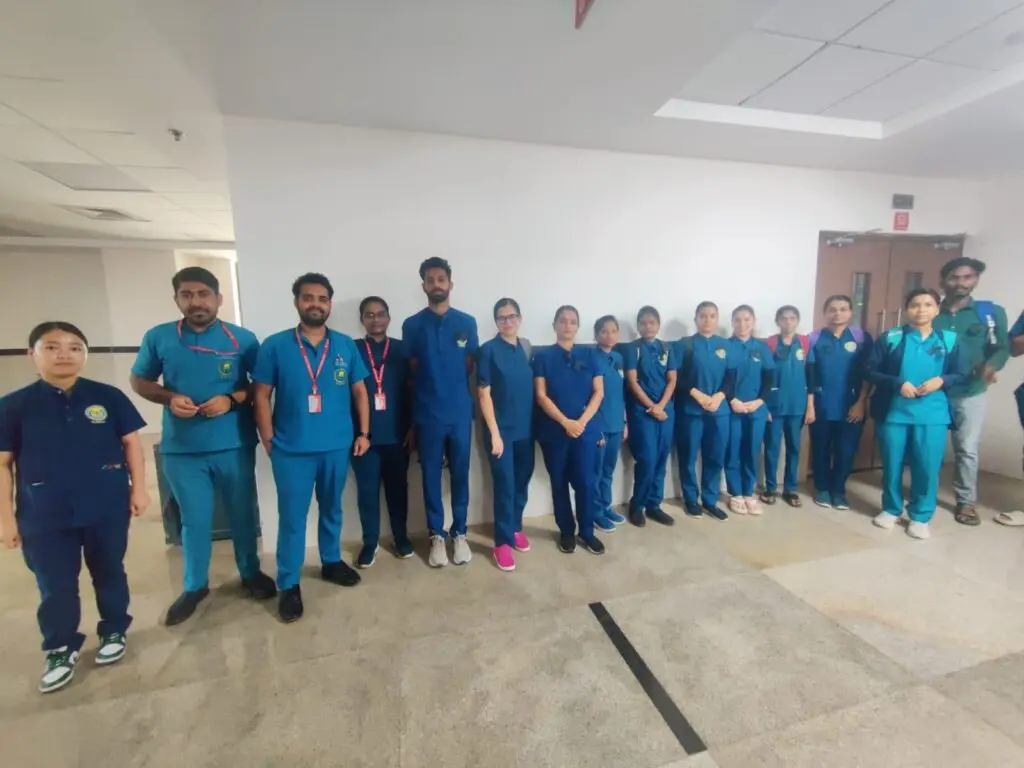
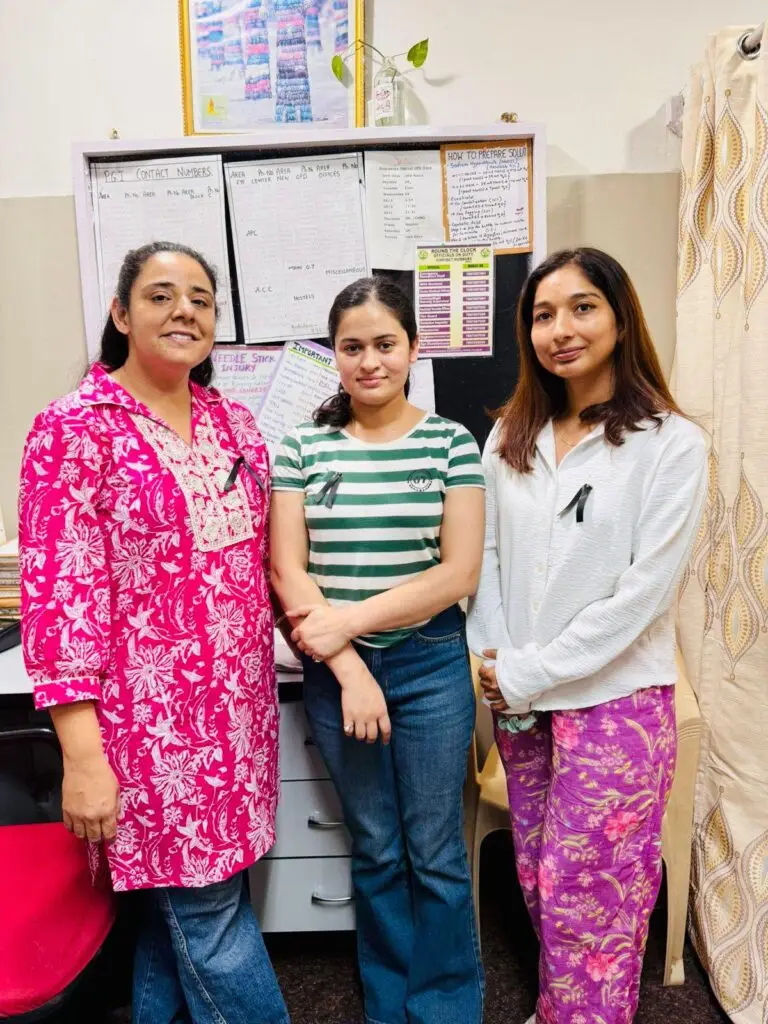

Lot of nursing officers are suffering from this role so we want justice for male nursing officers kindly take decision regarding this issue bye health minister 🙏🙏
80 percent quota for female is against whole male student and male person basic rights for education and employment.@ jpnadda